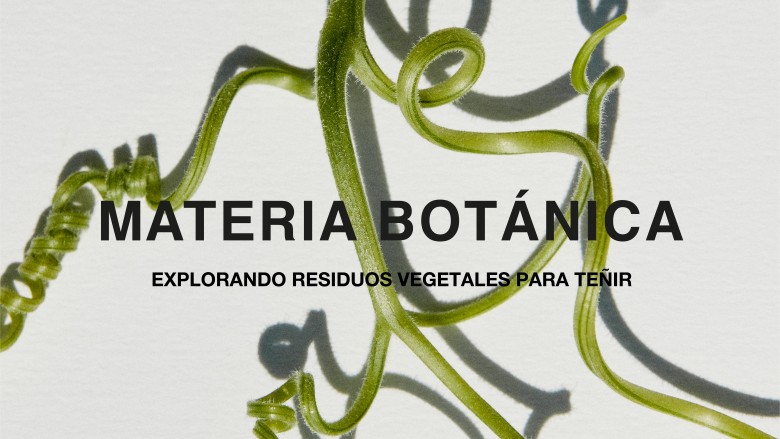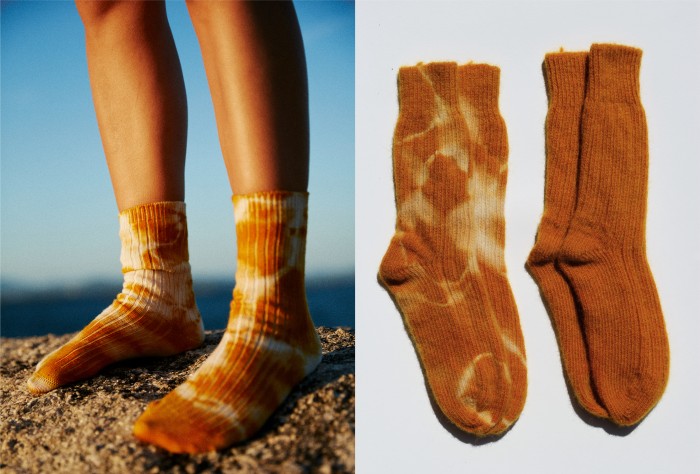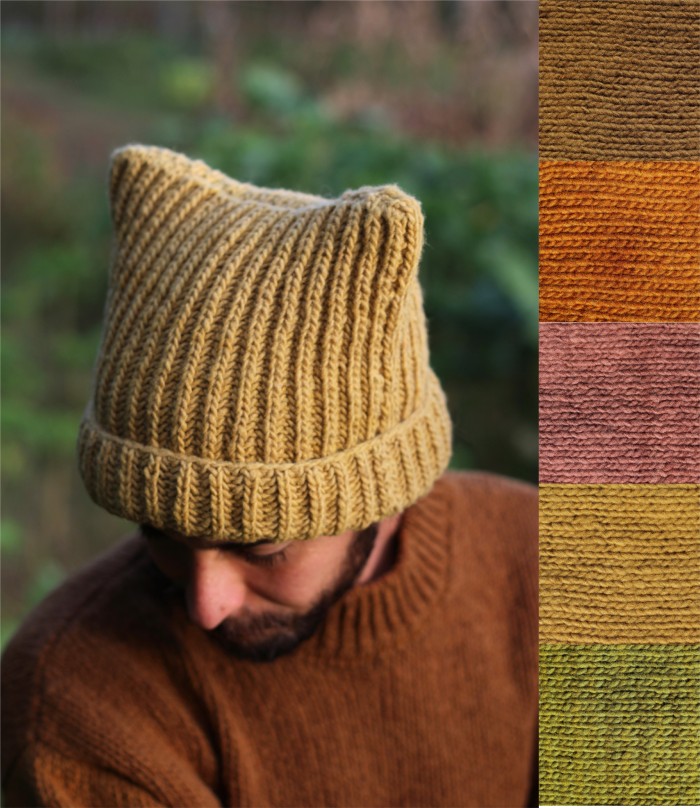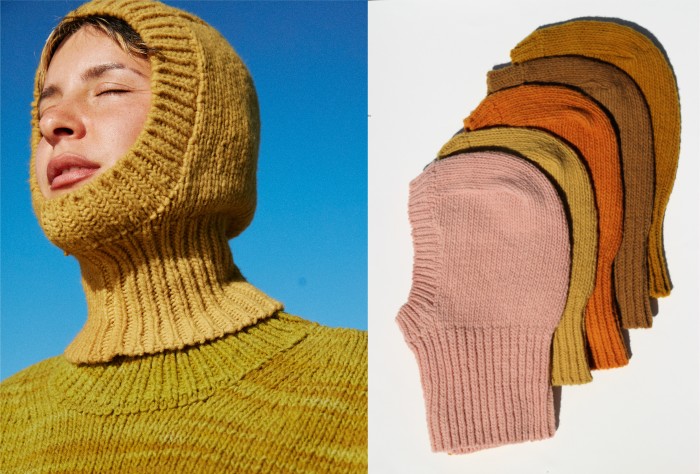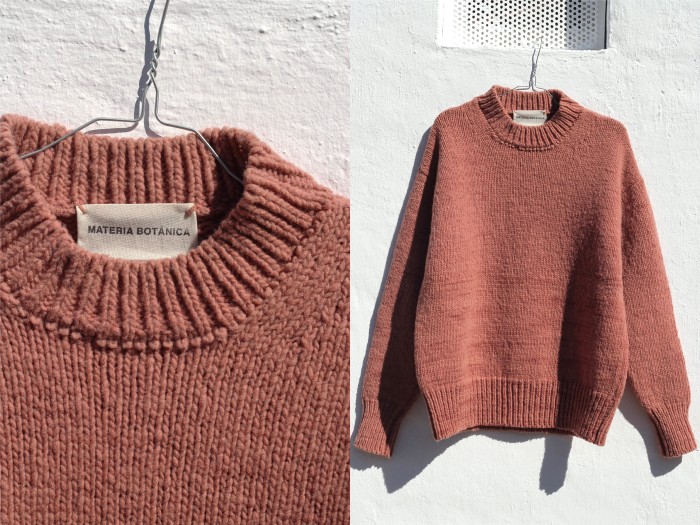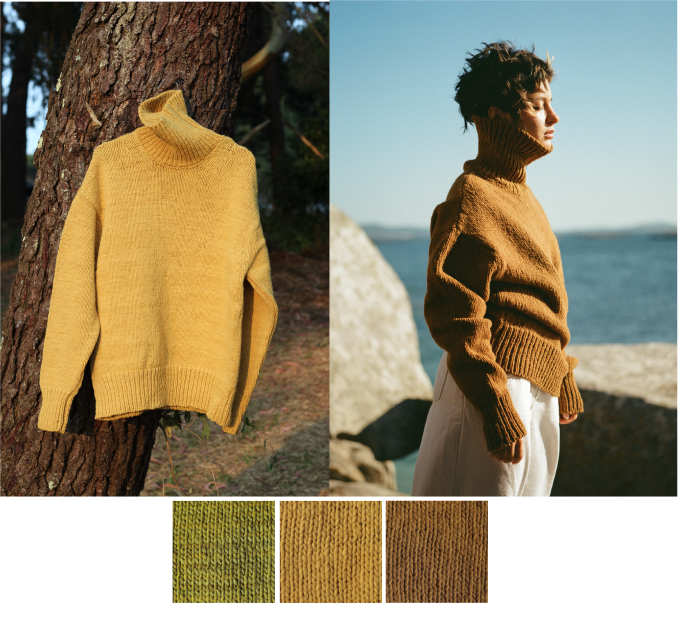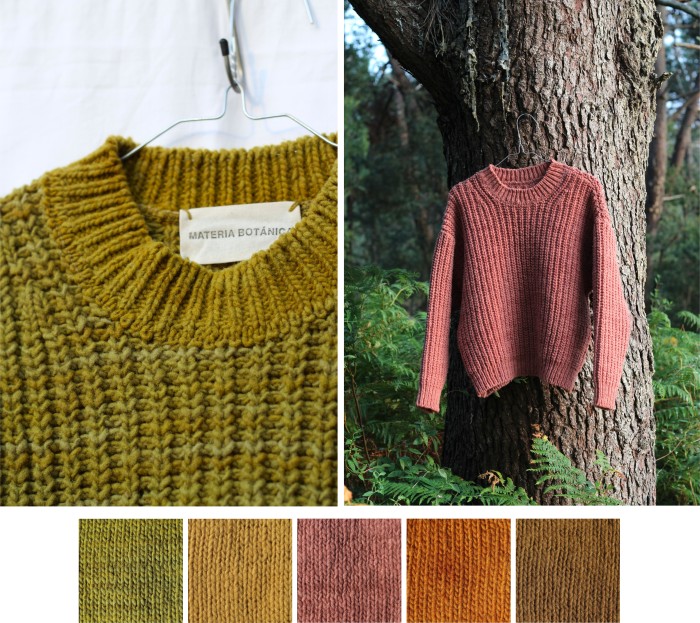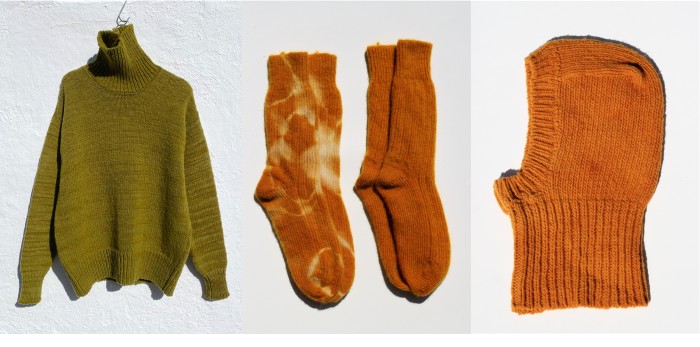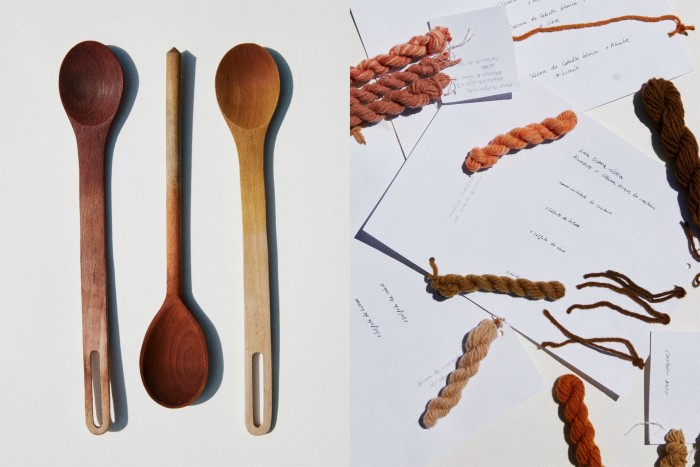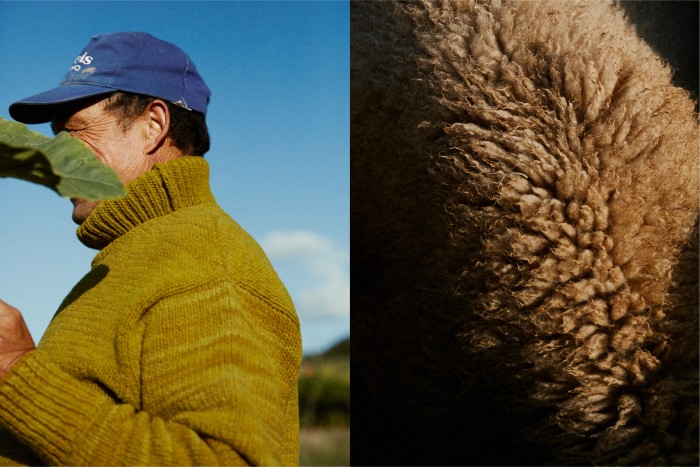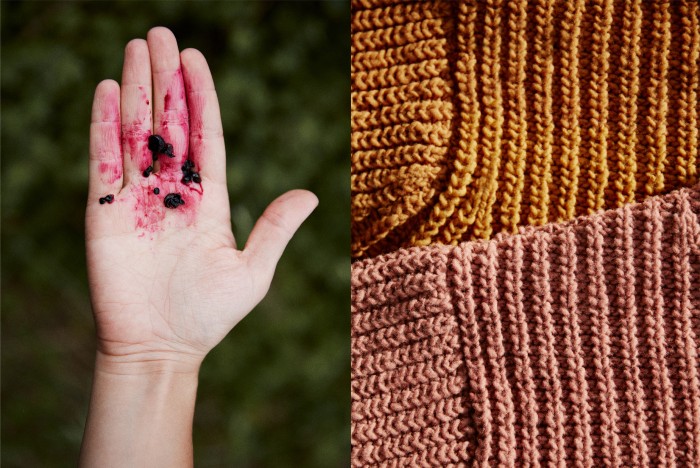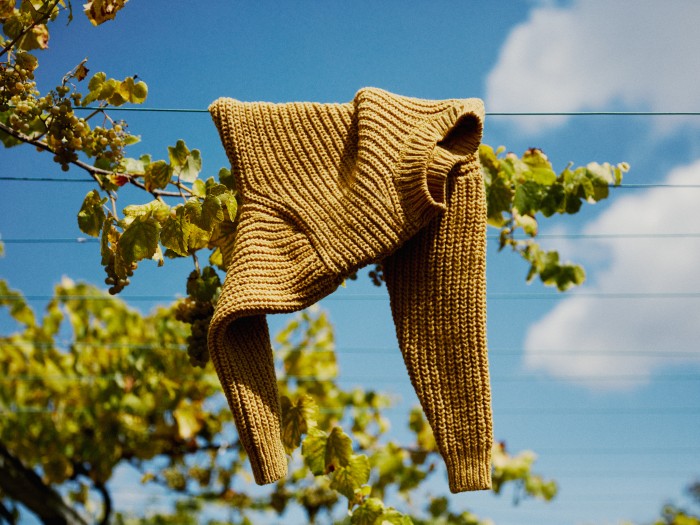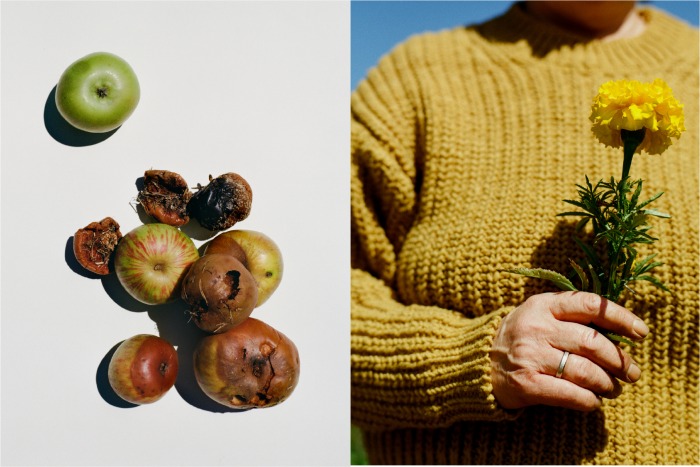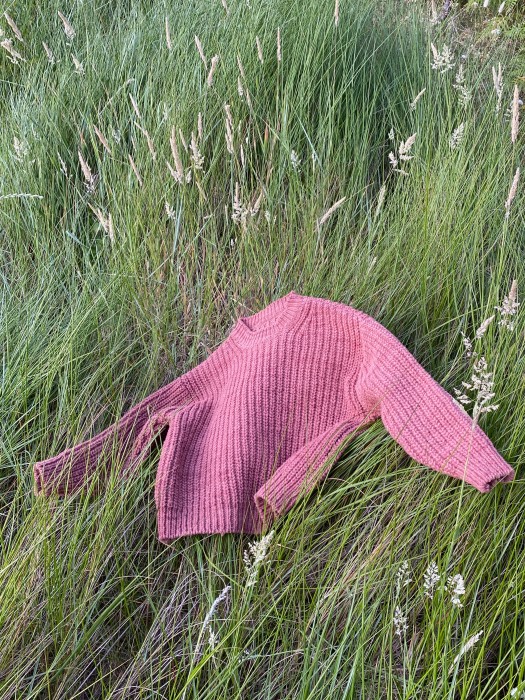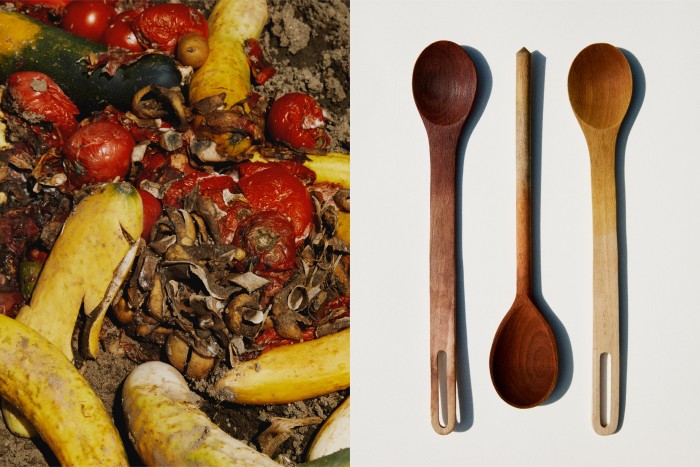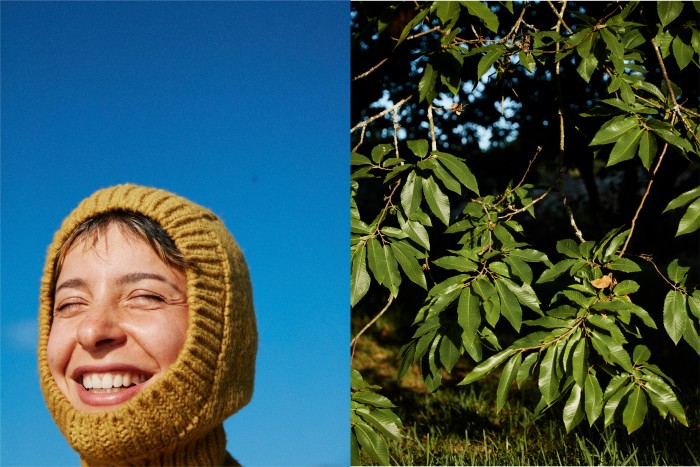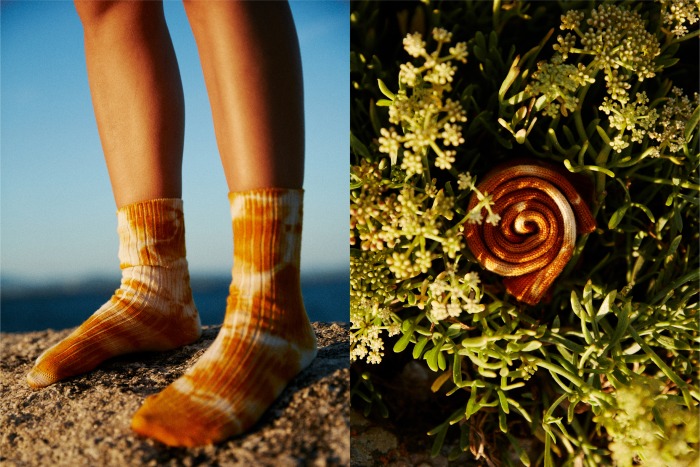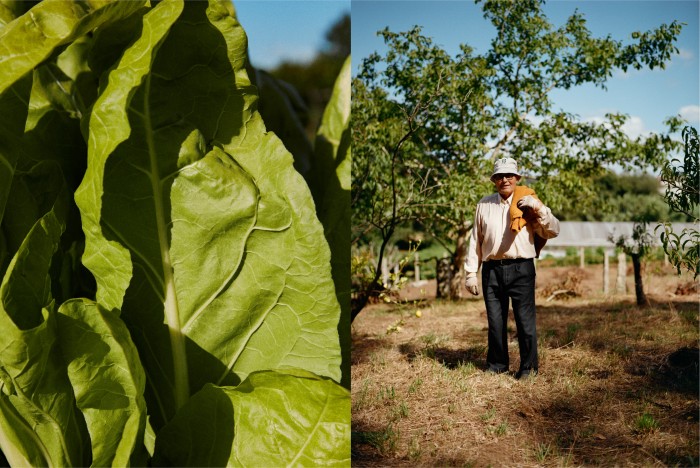Materia Botánica is a textile research project that explores vegetable residues that come from agriculture, to recover them and extract from them the natural dyes with which to dye clothes. The result of this project has been the creation of a series of garments woven with wool and hand-dyed with recovered vegetable waste.
This journey began as an experimental project in order to discover the plants that surround us, unconventional materials and find systems to create clothing without synthetic or toxic substances, in order to avoid having a negative impact on the natural environment and the beings that inhabit it. After the dyeing study, we chose six plant waste materials that have given color to garments woven in merino wool: Sweaters, hats, balaclavas, scarves, socks and blankets. Timeless, gender-neutral basics that focus on quality and durability, with the aim of making one of those garments that is passed down from one generation to the next.
Seeking to reflect on current production systems, we can rethink our way of creating: Can we produce at the same pace as the times that mark the seasons? Can we imitate nature's cyclical way of creating? These questions help us deconstruct current systems of mass consumption and production, and guide us to redefine the concept of waste.
This project is the result of collaborative work between farmers, ranchers, crafts and cultural heritage.
Main features and goals of the crowdfunding campaign
In 2022 this project was awarded a grant by a textile research call, funded by the EU and mentored by AITEX ´Textile Industry Research Association´. Thanks to this opportunity, which gave way to the study of more than 50 dyeing materials from vegetable waste, different plants, fruits, peels have been selected, all of them waste donated by farmers and companies in the food industry.
The name Materia Botánica comes from the raw material, plant elements, waste that we recover to give it a new life: to give color to clothes. Natural dyes give us the possibility of obtaining garments free of harmful substances while promoting the recovery of a traditional trade. Through manual work we recover the understanding of material, we leave the fast, standardized and industrial processes and reconnect with the nature of time and materiality.
This project seeks to deepen the relationship with the land and with the producers who work it, reinterpreting elements of everyday life which are usually undervalued and can be overrecycled.
We look at plants, their dyeing properties, permaculture, grazing, the cyclical times of nature and their cultural role, to learn from it and transfer it to the textile production sector.

Redefining the concept of waste
The dyeing possibilities of each plant residue have been studied using artisanal dyeing techniques and using mineral and vegetable fixatives (non-bioaccumulative). With durability and proximity as a premise, the following wastes have been chosen:
• Avocado pits
• Purple and yellow onion peels
• Chestnut peels and fallen leaves
• Pomegranate peels
• Almond pericarp

During a year of research, we connected with farmers and companies in the food sector both locally and throughout the peninsula, tracing a network of collaborators who provide us with raw material for the study. This raw material is usually discarded, burnt or undervalued. Therefore, by using this waste we increase its value and generate opportunities that could benefit the farmers' economy. After the collection of waste there is a process of classification, cleaning and conservation that has currently been done with limited tools and resources, however after this crowdfunding it is hoped to be able to obtain the financing to improve a system that facilitates this work.
The process of dyeing with plants is totally unpredictable. Although these colors may seem less solid or uniform compared to synthetic dyes, the water effect shows that the color is alive and the irregularity of the pigment makes each garment unrepeatable.
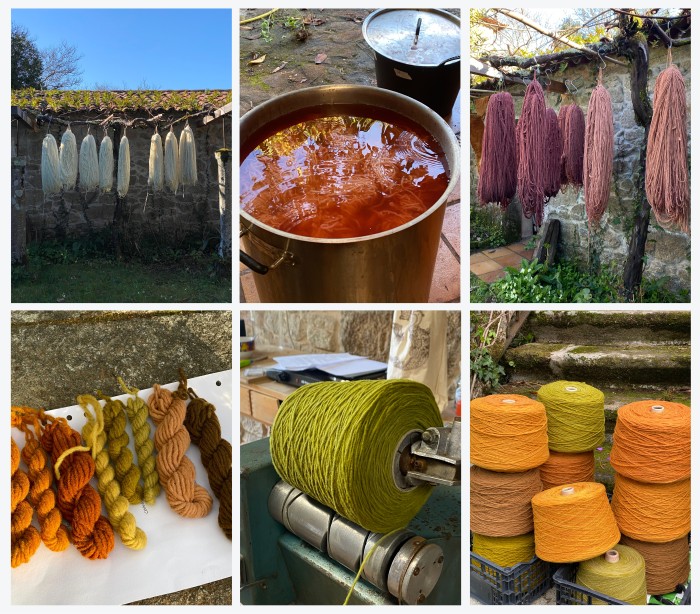
One of the most interesting features of botanical dyes is the medicinal properties of the plants used. Thanks to a bacterial culture study, we have found that these tissues retain the antibacterial properties of some of the plants used once they had been dyed. The antibacterial property helps the garment stay clean for a longer period of time by reducing odors and inhibiting the growth of bacteria and mites naturally. Bearing in mind that the skin is the largest organ and the first barrier that protects us from the outside, it is logical that we use tissues that are free of chemical, toxic and endocrine disrupting components.
The use of plants as a dye goes beyond being an alternative to synthetic dyes, since in addition to recovering a traditional technique, vegetable dyeing gives life to clothes and is a symbolic and ritual way of establishing connections between our bodies and nature.

Native merino wool
To create the garments for this project we have looked for a native merino wool from extensive livestock farming. It has taken a lot of time of research and visits to suppliers and livestock cooperatives to find a wool of these characteristics which was also very soft wool that does not itch.
The wool comes from the pastures of Extremadura, a holistic system that integrates free-range livestock, forestry and agriculture with the wild natural ecosystem. Extensive livestock farming includes key aspects such as the breeding of native breeds, transhumance and animal welfare. This traditional system of livestock and grazing has been an example of sustainability, helping to control forest fires, regulating water cycles and soil quality, helping to preserve the balance between biodiversity and the trades that sustain life in rural environments. The benefits and improvements in terms of sustainability compared to intensive livestock farming, which exploits animals and nature, are innumerable.
Over the last few decades, the use of wool has lost its place on the peninsula. The large fashion multinationals relocated production, taking advantage of the lax policies of other countries in terms of labor and environmental responsibility. This profoundly affected the traditional trades related to wool and textiles. It led to a significant decrease in employment and to the loss of knowledge, traditional techniques and understanding of a raw material, which few groups still have today. Nowadays, the use of wool has become a difficult task for farmers and shepherds, who come to consider it a waste because small farmers do not have the sufficient quantities required by the laundries, most of which now only work at an industrial level. For this reason, it is still very common to find large bonfires in rural areas, where the wool is burned.

A circular process, from soil to soil
The wool has been spun in a workshop in the Valencian Community. Meanwhile, the rest of the artisanal processes are carried out in Galicia, from the dyeing of the wool skeins to the weaving of the garments. The weaving of the socks is in collaboration with an artisan workshop in León. We created a series of garments such as sweaters, balaclavas, hats, accessories and textile objects. Seeking to make timeless gender-neutral basics, focused on the quality, durability and biodegradability of the garment.
The design of the garments and their production system are based on the circular and regenerative economy, in which the impact on the natural environment is positive. Having a repercussion on the economic and cultural reactivation of the territory.
There is no concept of garbage in nature, any waste becomes a resource or food within its ecosystem. This is the principle of the circular economy: a cyclical production system in which people recycle, reduce and reuse with the aim of reducing the exploitation of resources, virgin materials and polluting waste. Vegetable coloring on natural fabrics gives us the possibility that the garment, once it has reached the end of its life, can biodegrade without giving off toxicity in the soil.

OBJECTIVES
• TOXIC-FREE GARMENTS: Create garments free of synthetic and toxic chemicals. Offering this alternative is necessary for some people who need to be more careful with substances in contact with their skin.
• ELIMINATE THE USE OF SYNTHETIC SUBSTANCES: Reduce the use of synthetic and toxic chemicals in the textile sector.
• REGENERATIVE IMPACT: Find and implement productive and creative systems for the textile sector with a regenerative impact, to recover and conserve natural biodiversity, cultural wealth and the local economy.
• RESEARCH & INNOVATION: Investigate the infinite possibilities of colour contained in the plants and waste that surround us.
• REDUCE CONSUMPTION: Reduce the consumption of virgin materials and recover materials that are culturally undervalued.
• WASTE RECOVERY: Find a system for the process of recovery of plant waste, which facilitates the process of drying, washing, selecting, storing and preserving organic matter.
• COMMUNITY: To build meeting points of shared knowledge, a community of people to share knowledge and experiences around plants and their uses, creative and artisanal processes. A collective space of open education, where issues related to responsible production, regenerative practices, the care of biodiversity and the recovery of collective memory can be addressed.

Why this is important
The motivation of this project is to provide solutions and alternatives to the problem caused by the fast fashion industry. Textile production is the second most polluting industry on the planet. One of the main problems is overproduction, which is blamed by the big brands that manufacture in countries where labor is cheap and working conditions are enslaving. This represents an ethical problem and a clear example of exploitation, both of people and of natural resources.
The toxic trace of clothing
Synthetic dyes arrived in 1856 and replaced natural dyes because they were much cheaper and easier to use. When natural dyes ceased to be used, a tradition and ancestral knowledge disappeared, a craft and part of a popular culture whose knowledge was connected to plants, the seasons and the connection with the cycles of the earth. Most synthetic dyes are petroleum-based chemicals with a strong environmental impact, containing toxic, carcinogenic and mutagenic components, which pose a risk to the health of workers and users as well as irreversible damage to biodiversity.
Textile dyes contain heavy, toxic metals such as chromium, copper, nickel, and cobalt. There is a high risk of suffering from disorders and diseases derived from the concentration of these elements in the body. They especially accumulate in aquatic species such as fish, affecting the rest of the food chain, such as humans. The skin absorbs the substances in the dye, a danger to workers and residents of the communities near the factories. Toxic dyes are present throughout the life cycle of the garment, also affecting consumers and anyone exposed to the waste water left in the garment's wake.
In its DETOX campaign, Greenpeace (2012) warns of the presence of NPEs (Nonylphenol Ethoxylates), "NPEs are intrinsically dangerous substances, so any use of phthalates or azo dyes that can release carcinogenic amines is totally unacceptable". The NGO analysed 141 garments from brands such as Levis, C&A, Mango, Zara, Calvin Klein, Jack & Jones, Marks & Spencer and Metersbonwe, in 63% high concentrations of NPE were found (above 1,000 ppm). In addition to NPE there are numerous synthetic dyes that impact people's health, for instance the azonic components (banned in many countries), which are capable of releasing carcinogenic amines and they are found in a high concentration in many dyes on the market.
The management of synthetic dye waste is a serious, ambiguous and uncontrolled issue, which despite the legislation of some countries is difficult to carry out since the rules are not the same in all countries and large multinationals take advantage of this. Even many of the synthetic dyes escape water treatment processes, persisting in the environment.
The consequences of these processes have strong impacts on water, indeed it is estimated that around 100–150 litters of water are used to process 1kg of textile material. And around 28 billion kg of textiles are dyed annually.
The strength of big brands, fast fashion and the economy of countries in the Global North have managed to normalize and reduce the weight of an alert situation. We are continuously exposed to toxic, carcinogenic, allergenic components, capable of altering our health and that of nature, at the price of following the trend and the rhythm of fashion.
Cases of clothing allergies and intolerances have also become more prevalent in recent decades. The fabrics that make up our clothes as well as those of our home go through numerous processes of coloring, bleaching and synthetic finishes. The presence of toxic substances in clothing can trigger multiple chemical sensitivity, contact dermatitis, and other immune system conditions.
Being aware of the flaws of the fashion industry gives us the keys to challenge this system and find new paths towards responsible manufacturing. This is achieved through the creation of hand-woven and hand-dyed products that revalue usually rejected materials, preserve extensive grazing systems, create resilience and contribute to the conservation of habitat and soil fertility.

WHO IS THE TARGET?
• Those who are looking for responsible consumption.
• People who want to wear toxic-free garments, or people with skin conditions or chemical sensitivities who need to use fabrics that are free of synthetic, toxic and endocrine-disrupting components.
• Other projects, brands, organizations, that want to co-create to develop a proposal/product with vegetable dye.
• Farmers or companies in the food sector who want to recover their organic vegetable waste and turn it into a by-product.
• People or entities that want to co-create networks of shared knowledge where they can address issues related to plants and their uses, responsible creative production, regenerative practices and the recovery of collective memory.
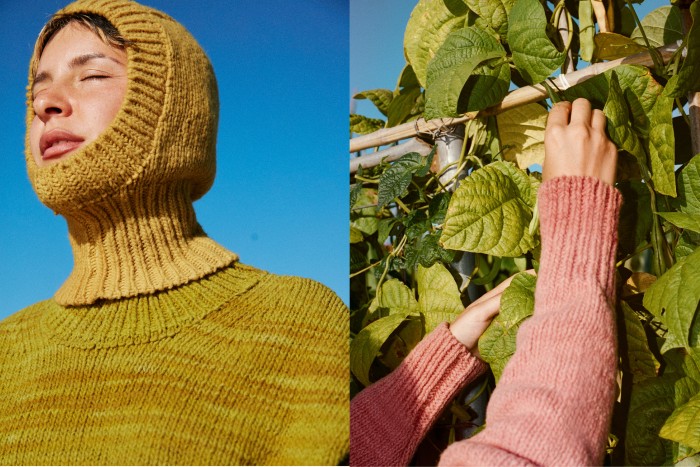

Team and experience
Materia Botánica is a research project promoted by Almudena Cerezo, textile designer, specialized in co-design and circular production; artisan and trainer. She works in the design, research and development of textile products for projects with a focus on production ethics and sustainability. Their work is influenced by the learning obtained from artisans, starting from traditional techniques that are complemented by creative processes.
Thanks to the collaboration with farmers, florists and companies in the food sector, we can collect vegetable waste to rethink its functionality. Most of the collaborators in the research process are local people, private gardens, small farmers, market workers, gardeners in the area and some restaurants. Despite seeking to take advantage of local waste, there are certain materials that are only grown in other parts of the peninsula and that is why we also collaborate with companies with more production capacity that can provide us with larger quantities.
COLLABORATORS
• Almendrehesa was created with the support of the Alvelal Association by 20 farmers who sought to improve their situation and that of their territory, threatened by problems such as desertification, depopulation or loss of biodiversity. From Granada, they sell products from organic and regenerative agriculture. From this collaboration we obtain the pericarp of the almond, which we use as part of the tincture fixation process.
• M'agrada is a family project with a long history in the organic production of pomegranates in Alicante, committed to ethical and environmentally responsible farming. In addition to growing, they make juice from the pomegranates they collect from their own fields. Thanks to them we get the golden yellow color of the garments.
• Eromay is a family farm located in Valencia and founded more than 70 years ago. It grows, processes and markets onions and oranges. Thanks to their collaboration we obtain the peels of their onions with which we dye in green and orange tones.
• Consuay is a family business, onion producers from cultivation to marketing. From Valencia they send us the onion peels from which we extract the dyes that give orange and green colors.
• Amarelante is a Galician cooperative society that was born with the aim of recovering abandoned chestnut land and reactivating chestnut production in Ourense. In addition to the cultivation of organic chestnuts, they make chestnut flour and (bica no sé que es pero en google lo traducen como ‘kiss’ pero ni idea la verdad jejej). From the chestnut hedgehogs that have fallen on their grounds we extract the pigments that dye the garments brownish.
• Aguacate de Málaga is a company that grows and processes avocados and with which we recover the remains that are usually discarded, not suitable for consumption. From this waste, which is then classified, cleaned and preserved, we obtain pink and maroon tones.
• Nahikare Oneca y Agustín Bobo (Enanei) are the photographers who have documented the essence of Materia Botánica. Their gaze have captured in a real and intimate way the people and the habitat that surround this project in rural Galicia. The sheep, the plants, the work in the garden, our neighbours and other villagers are portrayed in this magical photo documentary.

